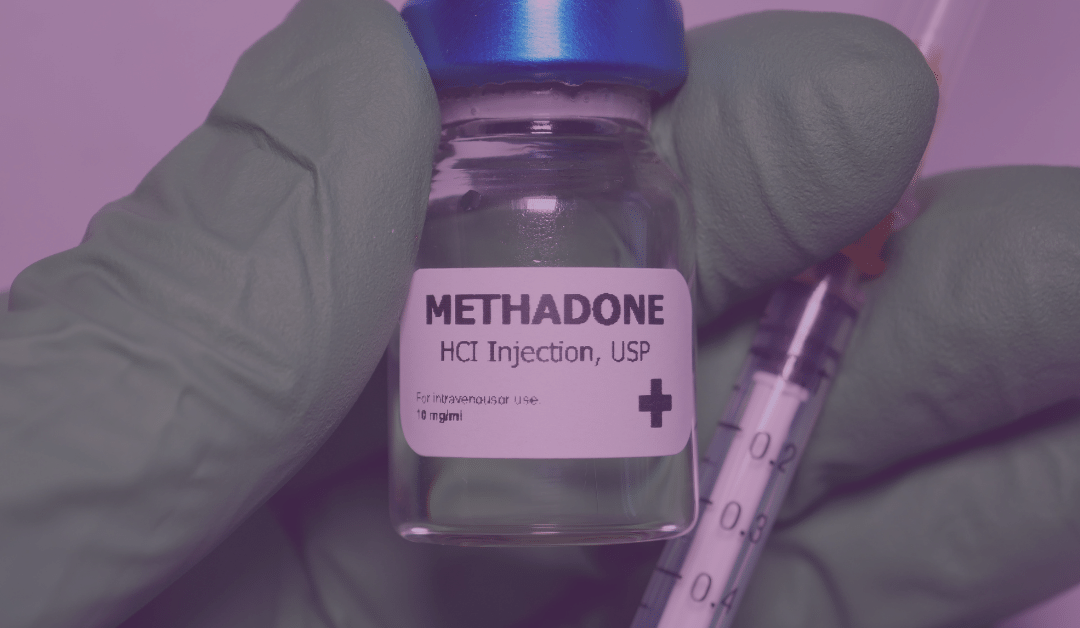
by Madeleine Craig | Jul 31, 2021 | Chaos to Clarity, Family Addiction
This is another area where stigmas around addiction still persist and where there is still much to be learned.
There are several things to think about when considering medically assisted treatment.
For a long time, abstinence-only approaches, where the person abstains from any drug whatsoever, were the only ones known to positively affect addiction outcomes. This is no longer true.
While abstinence is may be necessary for severe substance use disorder, medical advances have discovered treatment protocols for addiction that sometimes include medication, often an opioid derivative, that significantly reduces cravings but does not have psychotropic effects.
Withdrawal from opioids in particular is incredibly challenging.
Even after the withdrawal period, the powerful cravings for the substance can be very difficult to resist. The body’s physical dependence on the substance is very challenging to overcome.
In light of the skyrocketing rates of opioid addiction and fatal overdoses, opting for medically assisted treatment can be life-saving. And the statistics overwhelmingly bear this out. A person cannot recover if they die from an overdose.
Depending on the level of use, withdrawal from alcohol is also very challenging and will need to be medically assisted to prevent seizures, and even the risk of cardiac arrest. For that reason, I want to make the side not that, if your loved one is heavily drinking, removing all sources of alcohol from them can have life-threatening consequences. I do not suggest doing this.
That said, there are some, and these are usually people from complete abstinence-based programs, that claim medically assisted treatment is not abstinence.
However, if a doctor recommends medically assisted treatment, there are a few things to keep in mind:
You may find that this is not even a debate worth getting into simply because the studies have unequivocally shown that medically assisted treatment saves lives.
Because it greatly reduces withdrawal symptoms and cravings, medically assisted treatment is scientifically proven to reduce opioid related fatal overdoses in particular.
If your loved one is addicted to opioids, medically assisted treatment helps keep your loved one alive – which is important! This is also true to a lesser degree for alcohol.
That said, it is also important to note that medically assisted treatment does nothing to alter any of the other factors that contributed to your loved one’s addiction, and it does not necessarily improve your loved one’s quality of life.
Your loved one will still have to address the other factors that contribute to their drug use – the people, the triggers, the stress, etc.
They will still have to rebuild their life, in other words. The medication will not do that part for them.
Furthermore, some treatment professionals believe that medically assisted treatment can interfere with an accurate diagnosis of any other co-occurring disorders. And not treating those co-occurring disorders will significantly increase the risk of relapse.
So this is a subject you will want to discuss thoroughly with a treatment professional.
The amount of time your loved one may need to remain on medication will depend. That can only be determined between your loved one and a qualified treatment professional.
Lastly, there is a chance your loved one can also abuse those medications, and it can be difficult to find a doctor certified to oversee your loved one’s medically assisted treatment as they require a special certification to prescribe these medications. That said, telemedicine is having a positive impact on this problem.

by Madeleine Craig | Jul 31, 2021 | Chaos to Clarity, Family Addiction
There ARE a lot of different models of treatment out there.
Your loved one will need to be assessed to determine the exact nature of his or her needs.
40% of people with substance use disorders also have another co-occurring mental disorder. Co-occurring disorders almost always need to be addressed along with the addiction as each disorder may be preventing recovery from either one.
Ideally, you will want a treatment center that uses evidence-based methodologies (and you should ask what these are and what the credentials are of care providers), and that addresses all of your loved one’s needs.
You will also want to ask if that treatment center has a family program, and if so, what the details of that program are.
However, your treatment options may well depend on your own financial ability, whether or not you have insurance, and what type of treatment your insurance will cover.
Although you will want to ask any treatment provider what their treatment model is and what kind of evidence they base that model on, for better or for worse, your treatment choice may need to be based on your finances and your insurance.
Please note, there are intensive recovery education programs around the country that are based solely on the 12-Steps.
While there may be much less evidence-based support for the effectiveness of these programs, they do work for a significant number of people and there are many, many people who recover using 12-Step recovery meetings alone.
12-Step support groups are officially considered “recovery support services,” which are incredibly important for long term recovery because they significantly improve the chances of long-term recovery and reduce the chance of relapse.
It can take up to seven years before the risk of relapse drops below 15%, and recovery support services, of which 12-Step programs are the most widely available, have been shown to effectively support the changes in behavior necessary for long-term recovery.
It is also not uncommon for people to go through traditional treatment and then spend another period of time in an intensive 12-Step recovery education program in order to ground themselves in the recovery support they will need moving forward.
And because these programs often do not offer medical treatment – they refer that out if it is needed, they can be much less expensive than traditional treatment.
They are not, however, covered by insurance.

by Madeleine Craig | Jul 31, 2021 | Chaos to Clarity, Family Addiction
While it’s not advisable to publicly broadcast your loved one’s alcohol or drug problems, it’s also important to remember that you need and deserve support.
Of course, you should share your experience with your loved one’s drug and alcohol use with trusted support people, but you should do so with the understanding that they will keep that confidential.
On the flip side, it’s also important to realize that it is NOT your responsibility to keep your loved one’s drug and alcohol use a secret.
Many people probably already know, and if that’s the case, it is generally not helpful for you to try to hide and cover up for your loved one. Often this only results in denying your loved one the consequences that could compel them to get help.
Again, I realize that sometimes those consequences may also implicate you to a serious degree.
There is no right answer in these cases, but wherever possible, speaking with a trusted support person, and a professional if necessary, and even taking the time to meditate, will help you decide what to do.
That said, covering up your loved one’s actions to protect yourself is almost never an effective strategy in the long term.
If you find yourself covering up your loved one’s behavior to protect yourself, that’s a very good sign that you should seek professional advice about more effectively protecting yourself in the long term without having to continually cover things up.
These are excruciating decisions, I know. So, again, please make sure you are seeking support from trusted people and from professionals where necessary.

by Madeleine Craig | Jul 31, 2021 | Chaos to Clarity, Family Addiction
There is no list of dos and don’ts in terms of what you can discuss with your loved one. There is a list of dos and don’ts when it comes to WHEN and HOW you talk about things with your loved one:
Family members are often afraid that certain topics will make their loved ones use again.
If you want to have a discussion with your loved one about a topic that triggers this fear in you, it is important to remember the three Cs: you didn’t cause it, you can’t control it, and you can’t cure it.
What this means is that nothing you say or don’t say can either MAKE your loved one use or keep them in recovery.
However, do not try to have a conversation with your loved one if they are under the influence. It’s pointless. In fact, if your loved one is under the influence, you should do your best not to engage in any discussion with your loved one.
If you never have an opportunity to discuss with your loved one when they’re not under the influence, you may have to make decisions without their input.
You may try to let your loved one know that there are things to discuss, and you won’t be able to include their input unless they give you an opportunity to talk to you when they’re not under the influence, but of course, there is no guarantee they will do that.
And they may try to start a fight and pressure you into having a conversation that they are in no condition to reasonably have. Giving in is not likely to be productive.
Anything can be brought up and discussed as long as you can do it with respect for your loved one’s dignity. Avoid blaming and accusatory tones. If an action by your loved one is a cause of a situation, point that out calmly.
Also, remember that you don’t necessarily have to come to any conclusions in one conversation. Either of you might need time to think certain things over.
It is important not to allow your loved one to force you into conclusion you’re not prepared to make, or come up with an answer you’re not prepared to give.
Use the broken record technique if this happens, repeating over and over something to the effect of “I need some time to think about it/consider the options.”
It’s also important to give your loved one this time should they ask for it. Yes, they may just be stalling, but if it becomes apparent that is what is happening, then you may have to set a boundary, or a deadline around the conversation, making sure it’s a boundary you are prepared to keep.
Again, no false threats or your loved one simply learns not to take you seriously.

by Madeleine Craig | Jul 31, 2021 | Chaos to Clarity, Family Addiction
You don’t know if you can trust what your loved one says.
What I always suggest family members do is to trust actions, not words.
If your loved one is asking you trust their words, you can respectfully respond to what they ask with, “I hope you do, I really do, but I’m not ready to trust just yet. It’s going to take time for me to be able to trust you again.”

by Madeleine Craig | Jul 31, 2021 | Chaos to Clarity, Family Addiction
No. The idea of ‘rock bottom’ is bandied about in our culture, but it’s actually a myth, and a dangerous one.
It comes from back in the early days of AA when very little was known about addiction, let alone how to treat it. Back in those days, most people who did end up recovering had very, very low bottoms.
Furthermore, no one actually knows what ‘bottom’ is for anyone. For one person it may be getting written up at work. For some, a DUI. For others, it will take a near-death experience. And sadly, others may follow the addiction to the grave.
I strongly discourage you allowing the idea of ‘rock bottom’ to keep you from taking the actions I’ve suggested in previous modules. Because substance use disorder is easier to treat the less severe it is, and any one of those things could be edging your loved one closer to seeking recovery.
You don’t know what the tipping point is for them. You can only do what you can do.






Recent Comments